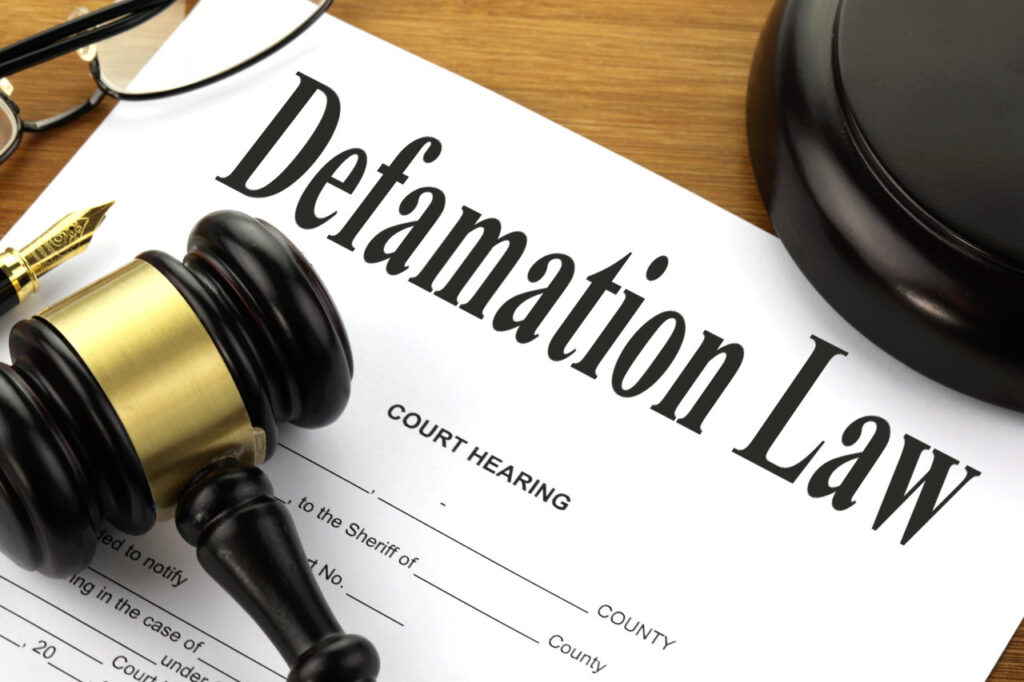Defamation is a legal concept that refers to the act of damaging another person’s reputation or integrity through false statements or publications. The statements or publications can be made in written (libel) or spoken (slander) form. In legal terms, defamation is a form of personal injury, as a person’s reputation and honor are considered their property under the law. This means that an individual whose reputation has been harmed by defamatory statements or publications has the right to seek legal remedies, such as filing a lawsuit for damages.
The origins of defamation laws can be traced back to ancient Germanic and Roman laws, where punishments for abusive chants or statements were severe, including cutting out the offender’s tongue. In modern times, defamation laws are in place to protect individuals from harm caused by false statements or publications that could damage their reputation and livelihood.
In India, freedom of speech is protected under Article 19 of the Constitution, which guarantees all citizens the right to express themselves freely. However, there are certain reasonable limitations mentioned in Article 19(2) which is exceptions to freedom of speech, one of which is defamation. If a statement or publication is defamatory in nature, it is not protected by freedom of speech laws and those who make such statements can be held liable for their actions.
“Indian Defamation Laws: Understanding the Distinction Between Criminal and Civil Cases and Punishments”
In India, defamation can be either a criminal or civil offense. Civil defamation cases involve false statements or publications that harm a person’s reputation and are made without their knowledge or consent. The penalties in a civil defamation case are typically monetary in nature. On the other hand, criminal defamation cases involve statements or publications that are extremely derogatory and made with the intent to harm a person’s reputation.
The Indian Penal Code defines the term defamation in Section 499 and lays out the punishment for defamation in Section 500. According to the Code, anyone found guilty of defamation can face a prison sentence of up to two years and a fine.
It is worth noting that, In India, defamation can be a criminal or civil case. In a civil defamation case, the statements must be false and made without the person’s consent. In a criminal defamation case, the statement must be derogatory and made with bad intentions. As per Indian Penal Code Section 499 and 500, Punishment for Defamation is imprisonment for a term which may extend to 2 years, or with fine, or with both.
Proving Defamation in Court:
To prove that defamation has taken place, the plaintiff must submit four main pieces of evidence in court. These include:
- The false statement that is being claimed as a fact
- The communication or publicizing of the derogatory statement to a third person
- The damages that the plaintiff has suffered as a result of the statement
- Negligence on the part of the offender.
When it comes to evidences in civil defamation cases, there are two types: Direct and Circumstantial. Direct evidence directly supports the derogatory statement, while circumstantial evidence is a series of facts that when proven lead to another fact. Other forms of evidence that can be used in defamation cases include testimonial, physical, documentary and demonstrative.
It’s important to note that not every spoken or written statement is considered defamation. There are certain essentials that must be met for a statement to be considered defamatory. These include:
- The statement must be defamatory in nature, meaning that it must harm the victim’s self-respect by damaging their image and reputation.
- The statement must refer to the specific plaintiff
- The statement must be published, meaning that it must have been communicated to a third party.
It’s worth noting that Defamation of dead person is not an offence except that if it hurts the emotions of a relative then it can be considered an offence.
Defenses in Defamation Cases:
When filing a defamation case, there are certain defenses that the defendant can use to defend themselves. These include:
- Proving that the statement made was true. This is considered a complete defense, even if the intent was bad.
- Arguing that the statement was a fair opinion made in the public interest and based on facts that are true.
- Claiming that the statement is privileged, meaning that it goes beyond the right to reputation. There are two types of privilege: Absolute, which protects statements made in the public interest regardless of how derogatory they may be, and Qualified, which protects statements made with good intentions and not to defame the plaintiff.
It’s worth noting that the concept of reputation, self-respect is considered as an asset for every human and no damage or pain must be inflicted on it. Therefore, Indian law has laid down provisions to hold individuals who defame others accountable and punish them accordingly. However, it is always best to seek legal help in interpreting these laws.


beautifully explained
many thanks
Thank you for the appreciation.
GOOD ARTICLE
Thank you for the appreciation.